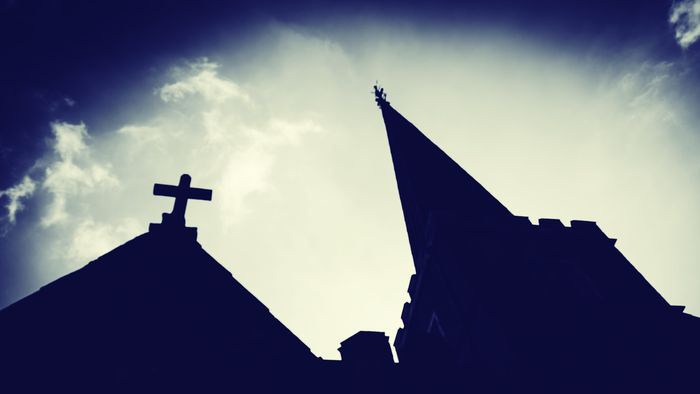Australians have much to be thankful for, not least their secular society

We need to banish the fears and insecurities on which religion was founded. IMAGE Daniel Limpi / EyeEm
During his address to the US congress a fortnight ago, Donald Trump looked up to the public gallery and said to a young woman, “Ryan is looking down right now. You know that. And he’s very happy…”
The audience responded with a standing ovation as the young woman, whose husband Ryan was killed in Yemen six weeks ago, stood with her hands together, weeping. It was, as media reported, a powerful and dramatic moment.
It’s possible that Carryn Owens believes her fallen husband is now in heaven. But the power and drama of that moment was something much closer to home: the profound grief in the face of the stricken widow.
The unexpected death of a loved one can be a shattering experience. Our hearts tell us that we have to focus on those left behind, and many would see the idea of heaven as comforting, part of a time-honoured routine to help the healing process.
But think about it: fully-formed adults speak without a hint of irony of the deceased in some form ascending to a place science has never identified, where people enjoy a perfect existence for eternity, looking down on us. Taken out of its religious context it seems utterly crazy.
There’s a history to this. For a long time we knew nothing about what was beyond the horizon, below the sea’s surface, under the ground or up in the sky. We filled the gaps with stories, which came to be accepted as truth. Many of these stories still carry great power.
In stages, science came up with its own startling stories: a Big Bang, a spherical Earth in a solar system, drifting continents, evolving species. One by one, the creation stories ceased to be accepted as fact, and for most Australians today they can fairly be called popular myth.
I was brought up to be a Christian, a follower of Jesus of Nazareth. I became quite attached to Jesus the man, whose life and teachings struck me as a fine example for any young person to follow, and I found much to like in the humanity and good works of countless believers.
I can still find things to like about the traditional English liturgy, drilled into my brain through constant childhood repetition, and freely admit I get great reward from religious music, architecture, history and culture. I would never deny religion’s intrinsic wonder and power.
But I came to reject the divinity of Jesus, along with the notion of an afterlife. Death to me is the lights going out, the natural and permanent end of my consciousness. With no afterlife, my body will be buried or burned, and that will be it.
In Australia we tend not to talk about any of the above. We wear our beliefs lightly (like we wear our monarchy) which is why we’ve grown into a pluralistic, liberal society. Ironically that has made us a highly desirable destination for many people of religion.
It pays to lighten up. God is not always about love, and history is riddled with deadly squabbles over whose god is right. Devout Jews, Christians and Muslims all believe their way is the only true way. That implies that the others are wrong, which is no way to build social trust and cohesion.
Many religious people consider atheism an affront to their belief and even to them personally. They say the absence of faith in God is the ultimate emptiness, without structure or meaning.
I don’t know what the faithful mean by “meaning”, but if I’ve been living without it, that’s okay. I’m happy with my lot. My life in Tasmania is rich beyond measure, for which every day I give thanks to whoever might be listening.
I don’t claim to know the true way, or seek to draw anyone away from their faith. But religion is just one of many social bonds; in fact it has turned out many times to be a divisive force.
Whatever our belief, we 21st century Australians should banish the fears and insecurities on which religion was founded and cherish our hard-won secularism. Life is for the living. Let’s live it.
